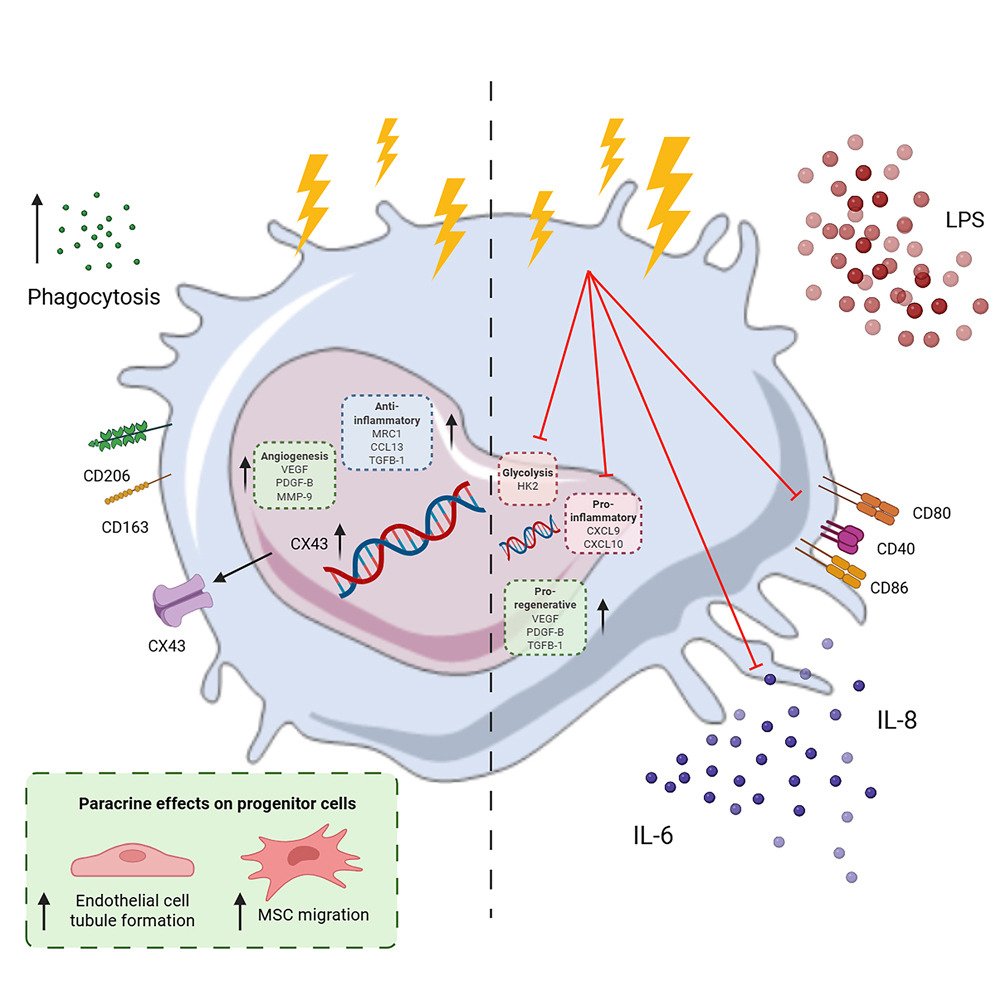Researchers at Trinity College Dublin have discovered that applying electrical stimulation to macrophages, a key type of immune cell, can reprogram them to reduce inflammation and promote faster healing. This breakthrough offers a promising new therapeutic strategy for treating a wide range of injuries and inflammatory diseases using bioelectric signals rather than drugs.
Macrophages are white blood cells that play a central role in immune defense and tissue repair. They patrol the body, clear out dead cells, and activate other immune responses. However, when overactivated, macrophages can drive excessive inflammation, which contributes to chronic conditions and impairs healing. Regulating their behavior has long been a goal in immunology and regenerative medicine.
In this study, Trinity scientists used a custom-built bioreactor to apply controlled electrical currents to human macrophages isolated from healthy blood donors. The stimulation shifted the cells into a more regenerative state, suppressing inflammatory activity and enhancing their ability to support tissue repair. This marks the first time researchers have shown that electrical stimulation can directly reprogram human macrophages in vitro.
Dr. Sinead O’Rourke, the study’s lead author, explained that while previous research hinted at electrical stimulation’s effects on wound healing, little was known about its impact on human immune cells. The team’s findings demonstrate that electrical cues can guide macrophages toward healing rather than inflammation, potentially improving outcomes in conditions ranging from autoimmune disorders to injury recovery.
The interdisciplinary team was led by Professor Aisling Dunne from the School of Biochemistry and Immunology and Professor Michael Monaghan from the School of Engineering. Their work is especially significant because it was conducted using human cells, making it more relevant for clinical applications. Electrical stimulation is also relatively safe and easy to administer, which could make it a practical option in future therapies.
Article from Trinity College Dublin: Electrical stimulation reprogrammes immune system to heal the body faster
Abstract in Cell Reports Physical Science: Electromodulation of human monocyte-derived macrophages drives a regenerative phenotype and impedes inflammation

